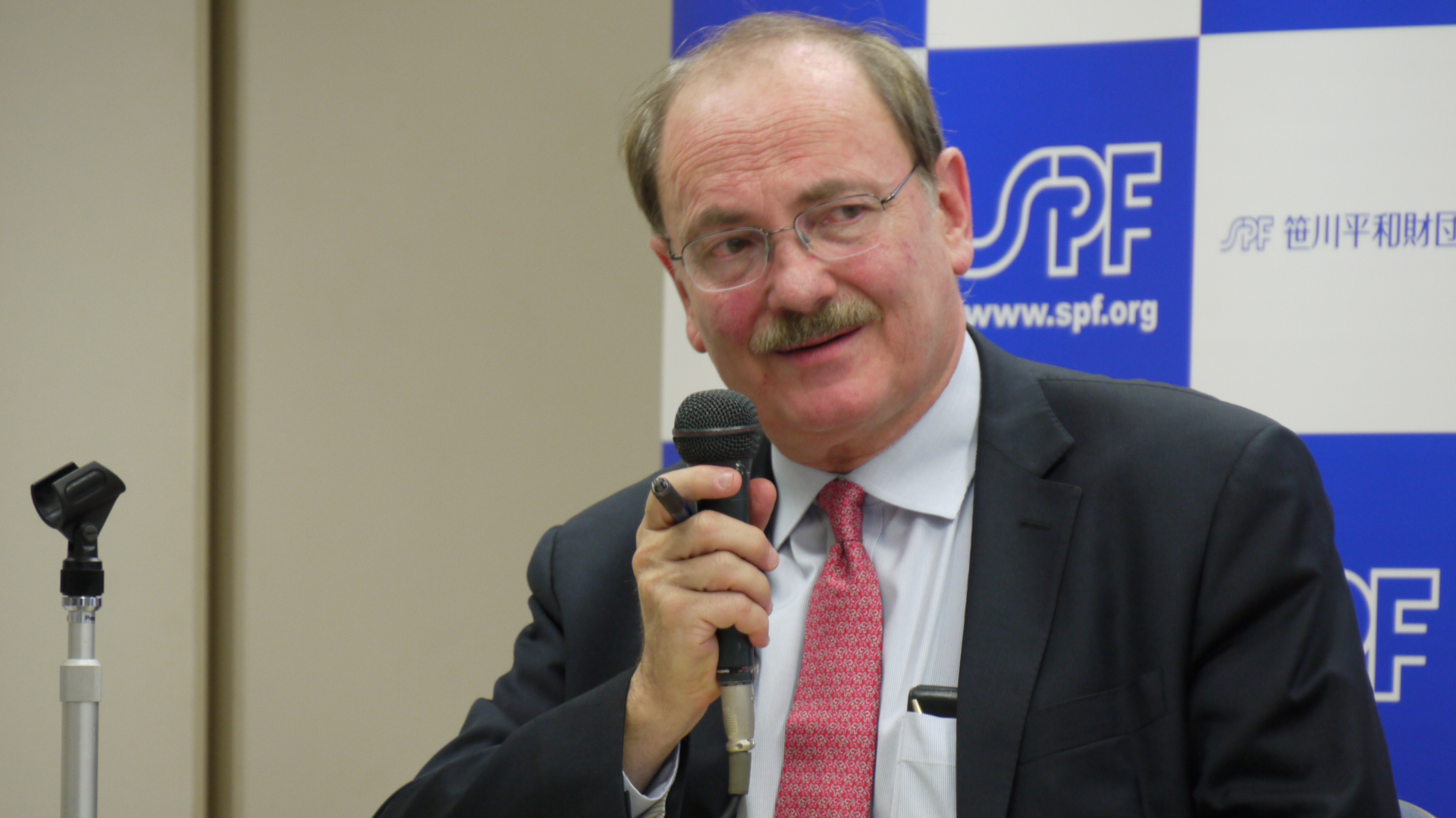Interview summary:
Q: Seventy years on since the end of WWII, this year has seen some major developments in Japan concerning security. A package of national security bills has passed the Diet, sparking heated debate.
A: The idea of collective self-defense and what it is that the United States would hope from an ally are not fully understood in Japan. The main thing is cooperation on the seas and in aerospace, i.e. minesweeping, missile defense, etc. I don't think the main thing for the United States is 'boots on the ground.'
Q: You have been researching about Japan for many years. In the current global context, what is the desired stance of Japan?
A: I think Japan's desired posture is low profile, i.e. to stay out of trouble, to be a good global citizen but not to make too much noise. In the kind of world we are moving into, though, there is more need for a higher profile stance by Japan.
Q: Today, you gave a presentation titled 'The United States, Japan and the Gulf Region'. What was your key message to the participants?
A: The first thing is that the Gulf is very important for Japan. It gets 80% of its oil from the Gulf. So, an active Japanese role is important. Inside the Gulf, there are certain countries that could be a targeted opportunity where peace-building by Japan could be quite effective and important.
Q: Can you tell us again about Japan's role in the Middle East?
A: I think we should leave open the option of a limited security role, particularly on minesweeping, where Japan has such a large minesweeping force of very high quality. Broadly speaking, however, Japan has energy efficiency technology and first class medical equipment. Its hospitals are very good. I think the non-military side is the most important.
Q: What do you think Japan should do to take greater advantage of its features and strengths?
A: I think it's a matter of national consensus for Japan's proactive role in the world. Japan has a more positive image in some parts of the world, particularly South Asia, India and the Middle East, than the United States does. It should use those for purposes that the world as a whole would benefit from. In energy efficiency, medical care, and a few security areas like minesweeping but mostly peace-building, especially in the Arc of Crisis nations around the key oil producers, I think the Japanese role would be quite important.
Q: The Sasakawa Peace Foundation conducts a variety of projects as a non-profit private foundation with no political constraints. What role do you expect of the SPF?
A: You can organize projects and conferences on things that the government cannot talk about. You can move more quickly and more forcefully than the government can. So I think you have a very important role in Japan today.
